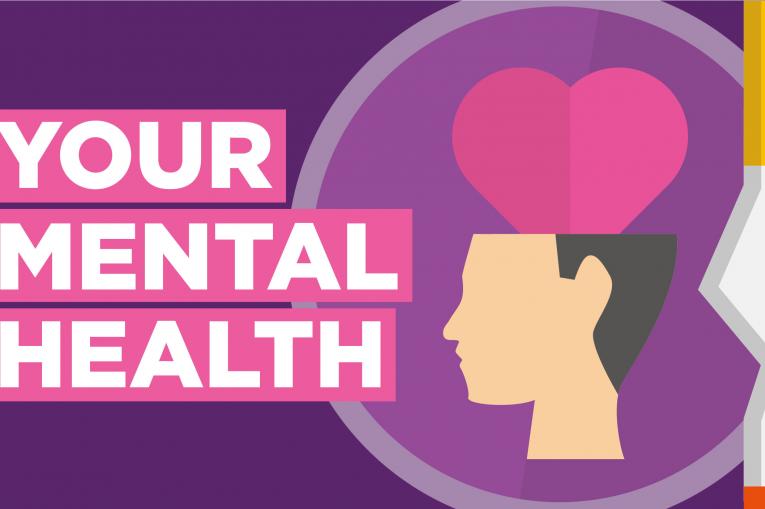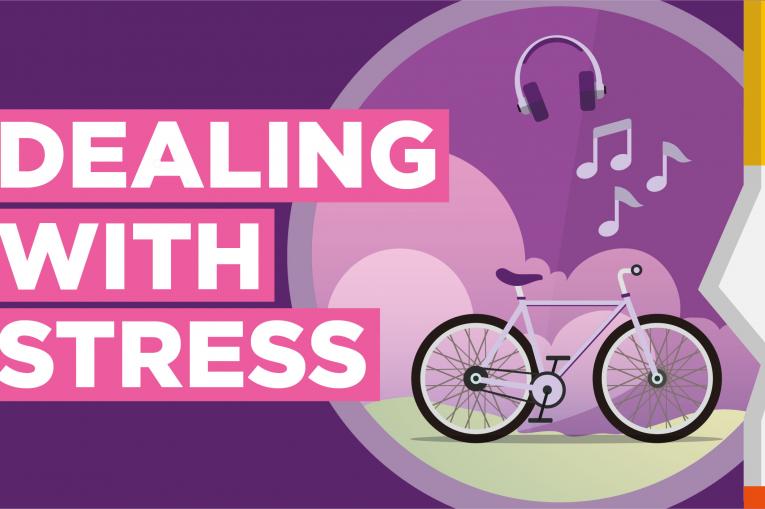Welcome to our April 2022 SmokeFree Hull newsletter, packed with useful tips on coping with cravings and mental health, success stories, and a spring recipe to support you on your smoke-free journey.
Meet the team
Our SmokeFree Hull team is here for you, we’re all passionate about helping our local community stop smoking and making you feel happier and healthier. So, let’s get to know them better…
SmokeFree Advisor David
What do you like to do in your spare time?
I like to potter in the garden and watch the birds. I spend too much money on bird food! On an evening I love television, especially cooking, gardening and superhero programmes.
If you had to listen to one song for the rest of your life, what would it be?
‘Weights and measures’, by Dry the River. It starts off quietly and builds to a crescendo.
What job did you want to do when you were younger?
I wanted to be an astronaut, turns out I’m claustrophobic and I don’t like heights. I don’t think I would have been a very good astronaut!
Why do you enjoy working as a stop smoking advisor?
Helping clients achieve their target of quitting smoking is rewarding.
What are three items you’d take with you to a deserted island?
A CD player, a television and a limitless fridge full of nice cold beer.
What’s your favourite food?
Panackelty. It’s a traditional dish, associated with the North East and in particular Sunderland, which is where I grew up. It consists of mainly left-over root vegetables and meat, if any, and if not, you can use sausages and corned beef. It’s slowed cooked in the oven, and great for coming home to on a cold winter’s day.
Why did you choose to work in smoking cessation?
It was through opportunity not choice initially. I served 22 years in the Royal Air Force, and I came to the end of my contract, so I applied for whatever jobs were available. I started in an administration/promotions role then became a Data Processing Officer. I eventually took on the role of a Stop Smoking Advisor as bank staff for a while, before becoming full time.
Do you have any pets, and what are their names?
I don’t have any pets, but I did have two dogs (Border Colliers) when I was growing up called Butch and Tess.
If you could pick up a new skill or hobby in an instant what would it be?
I played the guitar very badly when I was a teenager and I have always thought about trying it again, so if I could learn instantly that would be great.
What would be your idea of a dream holiday?
Not going on a boat or an aeroplane due to previously disclosed claustrophobia and acrophobia! So, it will be good old Britain for me in a nice hotel with a well-stocked bar for me and a jacuzzi for my wife.

Mental health and smoking
When you’re suffering from a mental health condition, quitting smoking can feel overwhelming and an impossible task. Some people feel that smoking helps manage their condition, but it actually increases your symptoms.
Lots of people say they feel free when they quit because they're not always thinking about having a cigarette. In our experience people who quit have lower levels of depression, anxiety and stress.
Our Advisors answer your questions on coping with stress and quitting smoking, so you can feel at ease on your smoke-free journey.
How does smoking affect my mental health?
We often try to explain to people that a mental/psychological connection can be made between smoking and stress relief, due to certain chemicals such as stress hormones adrenaline/noradrenaline - also known as the ‘fight or flight’ chemicals - becoming raised when stress occurs. This is the body’s natural response to certain stressful situations.
You may experience shallower breathing or notice that you have an increased heart rate. However, when these chemicals are present, nicotine levels are metabolised faster, so withdrawal happens faster too, as nicotine/dopamine levels start to drop.
A smoker who associates smoking with stress relief may then go and have tobacco, and within seconds nicotine and dopamine levels start to rise again. People often then create a connection that smoking helps with stress relief, but in fact, they are just fixing the withdrawal.
Can I take nicotine replacement therapy with my meditation?
Certain medications, such as anti-psychotics, are metabolised differently in the presence of nicotine, even when using nicotine replacement therapy (NRT). Therefore, when you have discontinued your NRT after quitting, you should book a medication review with your doctor, just to see if any adjustments in medication are required.
How can I cope with stress and cravings?
- Distract yourself by going out for a walk around your garden, or talking on the phone to a friend, this can often help take you away from a situation. You could also try sitting and reading or doing puzzles to help take your mind off worries or concerns.
- Try mindfulness videos on YouTube or think of activities that you used to enjoy doing that maybe you feel you have not had the time to do lately.
- Using NRT will give you a higher chance of success in quitting and help to alleviate any withdrawal symptoms.
- Breathing techniques are good to use to manage mental health/stress during a quit attempt.
- Exercise regularly, maintain a balanced diet and monitor your caffeine intake. Tea and coffee can increase your urge to smoke due to your daily routines.
- Improve your sleep routines as well, as it will increase your will power when quitting.
We find that once you do stop smoking, you feel less stressed and more in control of your stress, without the added worry of trying to find time or ways to fit in smoking, which we know is more of a negative short-term solution.
If you are struggling. just know that you’re not alone. We are here for emotional and behavioural support alongside your quit!
Where can I find more help?
For more information, wellbeing advice, and support, see the following links.
Recipe
By Stop Smoking Advisor Shaneen
This healthy spaghetti dish is full of broad beans, leeks and asparagus. It’s a great, quick and healthy recipe, and any leftovers can be enjoyed eaten cold for lunch too! The option to use fresh or frozen veg means it can be enjoyed all year round and it tastes equally as good with either.
Click here for the full BBC Good Good recipe

Success story with stress
A smokefree client
"I started smoking when I was 13 years old, as I was traumatised by an incident. A lot of people were smoking around me and I thought it would help me cope, and it did initially. Over the years I tried to quit a few times, and I’ve been to stop smoking clinics at the doctors before, when I was 17 and 18 years old, but it didn’t last long, and I recognise now that I wasn’t mentally ready to quit back then.
Now I want to stop smoking for my two kids, I don’t want them to be around smoke like I was growing up. I feel guilty, it isn’t good breathing in second-hand smoke, and I don’t want them breathing like that. I only ever smoked in the kitchen with the back door open, but kids still know what’s going on, and they would ask me why my teeth were yellow - I didn’t know what to say!
About a year ago, I was really struggling to breathe, and I felt like I was dying. I called my doctor, and he said I was suffering from panic attacks. They asked if I smoked at the same time, which I answered yes, and I was advised to stop, as it wasn’t helping my breathing or my panic attacks. This was the turning point for me, so I knew I needed to seek help. I want to be around longer to see my kids grow up, I don’t want to die young like my nana did, who suffered with COPD.
I was referred to SmokeFree Hull and worked with a Stop Smoking Advisor called Emily. Emily talked through the products I could use, and I ended up using the mouth spray and Nicorette patches as treatments. I got on fine at first, but I found the patches didn’t stay on my arm, so Emily recommended to put the patches underneath my bra strap, and this worked so much better. The mouth spray takes a bit of getting used to, but afterwards I really felt like it helped with coping with my cravings. I found that by sucking on it, that I had the taste of the spray in my mouth for longer, which made me forget about wanting a cigarette.
Within two weeks I saw the improvements. The first week really panicked me, as I was so used to my own routine, but once I broke the cycle and found a new cycle, I saw the benefits. My chest is clear and I’m able to breathe easier now. My throat, chest and back feel like I’m breathing fresh air for a change, which is a really good feeling.
My mental health feels so much better too. Before I stopped smoking, I used to be really anxious about picking my son up from school. I would have to have a cigarette before I left, and I would have to know that I could have one immediately when I got home, to be able to leave the house. Even the thought of wanting a cigarette would make me anxious as well. However, now, with the products I feel in control, I have taken control back in my life by using the mouth spray. I tell myself I can have the spray when you get home, and that I’ll be fine.
The journey hasn’t been all plain sailing though, I did have a hiccough at one point, as I had recently lost my aunt, and this made me slip up. Ironically my aunty hated smoking, she would always comment on the smell. So, I knew she would be proud of me for stopping, and this helped me get back on track.
Quitting smoking also made me look at other aspects of my life, and it helped me see that I needed to see a therapist about my mental health condition. Talking to a therapist has helped me talk through my problems, and to not use cigarettes as a coping mechanism. I see now that there are better ways to cope, rather than punishing my body.
If anyone suffers from a mental health condition and is worried about stopping smoking, I will say just go for it! Don’t be scared, trust the service, seek help from the doctor as well. It can be scary asking for help, but you can do it.
My anxiety held me back for so many years, and it did feel scary thinking about stopping smoking, but in the long run you are so much better off."

Get in touch
We’d love to hear from you!
The service is continuously adapting and developing, to make sure we’re providing the best service possible.
Your opinion matters to us, so please complete this survey to let us know how we’re doing.
Go back to the SmokeFree Hull news and stories page
